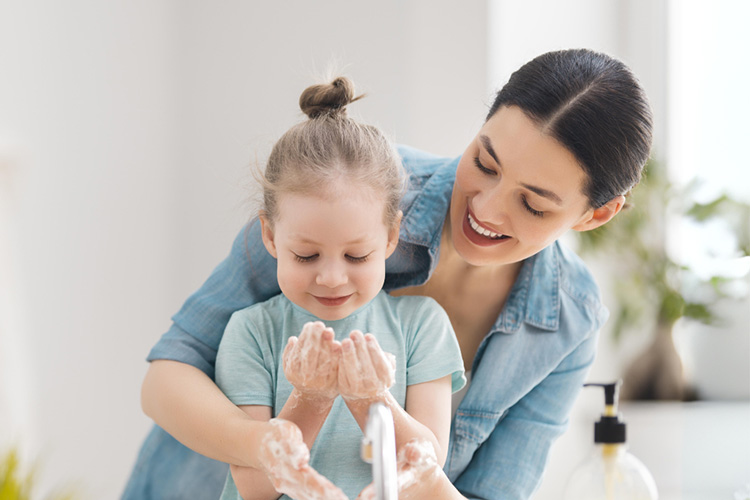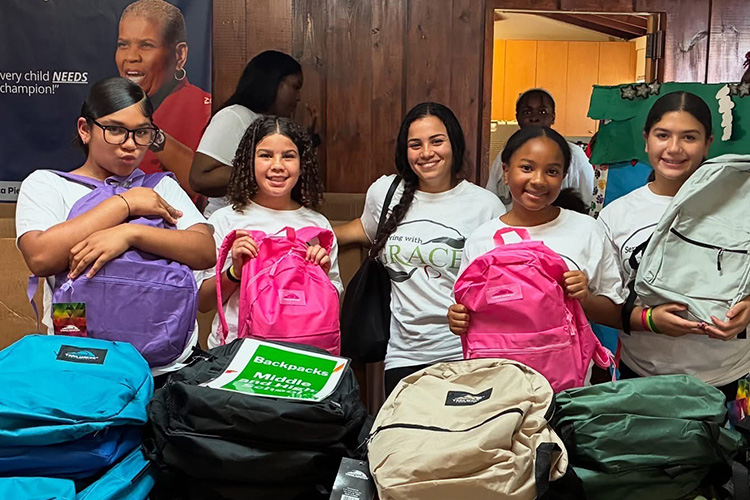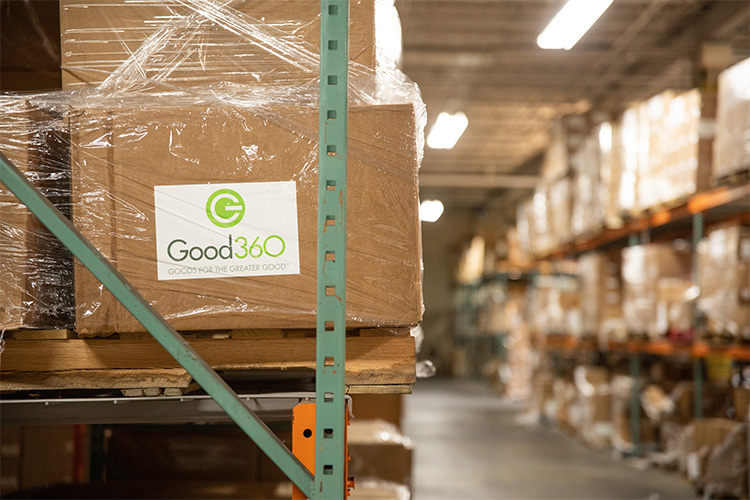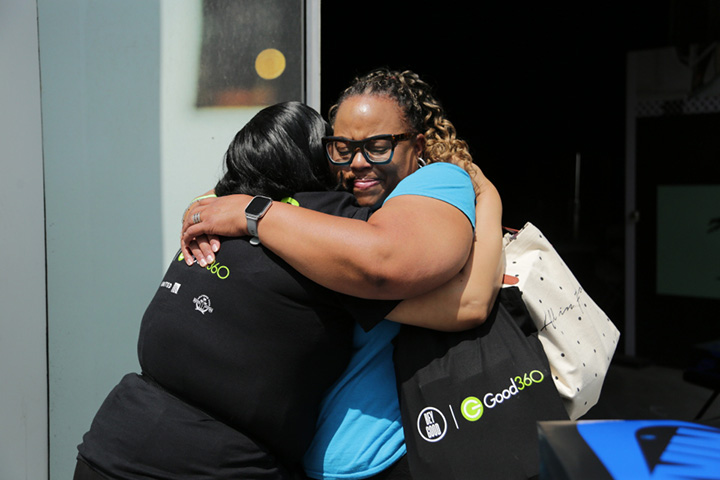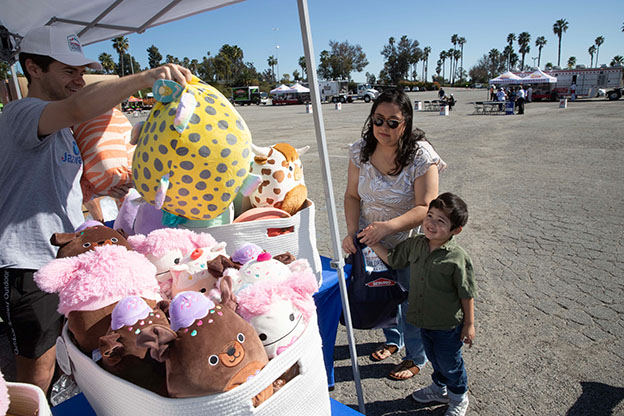Hygiene poverty is an invisible crisis in America, affecting millions of people in ways that are sometimes embarrassing to mention.
For the nearly 38 million people living at or below the poverty line, hygiene isn’t always a simple matter. Many people face a daily dilemma of deciding between “heat, eat, or health.” Making these hard choices can lead some to forgo necessities that many of us take for granted, such as diapers, feminine products, shampoo and deodorant.
This is hygiene poverty—when you can’t afford the basic supplies needed to stay clean and healthy for yourself or your family. On a practical level, here’s what it looks like:
- It’s going to a job interview not feeling confident because you’re worried about body odor.
- It’s not being able to send your child to daycare because you can’t afford diapers.
- It’s missing work because you don’t have access to period products.
- Its being bullied at school because of hygiene issues.
These challenges not only affect physical health but can also be detrimental to social and emotional well-being. For example, some studies have found that lack of access to diapers is a greater contributor to postpartum depression than food or housing instability.
The good news is that hygiene poverty can be easily fixed on a family-by-family basis, at least compared to more complex social issues. Getting the right products to people in need is a relatively simple process. In fact, Good360 nonprofits request personal care products more than any other category of donations.
A closer look at the impact of hygiene poverty
One of the reasons why hygiene poverty remains a silent epidemic is because it can be an embarrassing topic to address, and many people are simply not aware of how insidious of an issue it can be. Here are some critical statistics to know:
- Nearly 40% of S. adults report that they struggle to afford at least one basic need for health care, housing, utilities or food, according to a study by the Urban Institute
- The number of families who say they struggle to pay for diapers has increased sharply in the last decade, rising to 47% of families in 2023 from 33% in 2010, according to a study by the National Diaper Bank Network.
- 34% of teachers have seen at least one student skip school due to hygiene issues. This number rises to 42% for grades 9 and higher.
- 74% of low-income families who can’t afford household necessities skip laundry or washing dishes, according to figures released by the nonprofit Provision Promise
- More than 2 in 5 women say they have struggled to purchase period products due to lack of income at some point in their life, according to a 2021 study by U of Kotex. And nearly half of women who experience period poverty exhibit at least one psychological disorder such as depression or anxiety.
These data make it clear that basic necessities aren’t basic when you can’t afford them. Hygiene products are not a luxury; they are required for maintaining good health and well-being, both physical and mental.
Good360’s role in alleviating hygiene poverty
Every year Good360 distributes billions of dollars of products such as clothing, toys, home goods, and hygiene products to thousands of nonprofits around the country. In a 2021 survey of its nonprofit partners, Good360 discovered that hygiene products are the most needed items within its network.
Among the nonprofits seeking hygiene aid is Jake’s Network of Hope, a Good360 Community Redistribution Partner which started as an organization focused on helping low-income families get access to diaper supplies. The charity has since broadened its mission to include diapers, menstrual products, adult diapers and other household necessities.
“Good360 is a major partner of ours,” said Scott Sawinski, the nonprofit’s executive director. “We get donations throughout the year, and we can obtain diapers at a much reduced cost [by sourcing] pallets worth of diapers. We don’t charge agencies for the diapers. Our model is to give away core products at no cost barrier to the partner agency.”
Sawinski added: “If you have food insecurity, you’re also going to need diapers and period products. Diaper poverty affects 1 in 3 families. We really want to align ourselves with nonprofit s organizations, churches and schools to help solve this problem.”
Personal care products are especially needed in disaster relief and humanitarian crises to help survivors and refugees mitigate hygiene insecurity and prevent the spread of disease. For example, wipes are particularly useful when clean water is in short supply, which is often the case in the aftermath of a natural disaster.
Through our partnership with Nice-Pak and PDI, Good360 has been able to distribute more than $5 million worth of wipes to 600 nonprofits in North America and Europe.
Programs that target personal hygiene are low cost, high impact
Personal hygiene is easy to take for granted—if you have the means to never think about having enough toilet paper, shampoo, laundry detergent, etc. However, the impact of getting these supplies to a family in need cannot be overstated.
Dollar for dollar, programs that address diaper and period poverty may be one of the best public health investments around. According to the World Bank, hygiene promotion is the most cost-effective health action to reduce disease.
For example, a study of low-income families who received assistance from the nonprofit Diaper Bank of Connecticut found an economic gain of $11 for every $1 spent on diaper aid. In another highly successful initiative, Whirlpool gave out washing machines to schools in high-poverty areas. After students were able to wash their clothes at school, 73% of elementary students who had been chronically absent due to hygiene issues reported good attendance.
Everyone deserves to be clean. By ensuring people in need get their personal hygiene needs met, we can make an enormous difference in their health, safety and dignity.




